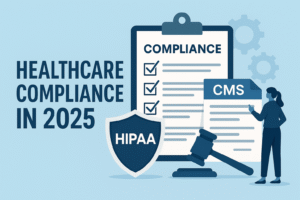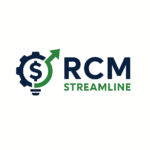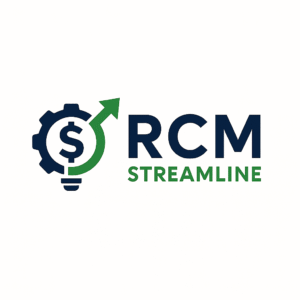
RCM Compliance in 2025: 5 Essential Rules Every Billing Team Must Know
Avoid penalties and streamline your processes—follow these must-know compliance rules to keep your RCM team audit-ready in 2025.
As regulations tighten, RCM Compliance in 2025 is more critical than ever. Teams that fall behind risk audits, claim denials, and reputational damage. In this article, you’ll learn how to stay compliant with updated HIPAA and CMS guidelines—and how to create a proactive culture that drives success.
1. Understand RCM Compliance in 2025: HIPAA’s New Mandates
HIPAA regulations in 2025 require stronger security protocols for digital health information. Ensure your billing systems are encrypted and conduct annual compliance training. Review the latest guidance from the U.S. Department of Health & Human Services to stay current.
2. Master CMS Documentation for RCM Compliance in 2025
CMS now requires granular detail in clinical documentation—especially for home health and time-based billing codes. Missing time stamps or vague justifications can result in denials. Audit your documentation weekly and use checklists like our downloadable RCM audit checklist to stay compliant.
3. Audit-Proof Your Billing with Proactive Compliance Strategies
Many teams fall into noncompliance by relying on outdated templates. Switch to dynamic forms and require supervisory reviews for high-risk claims. Consider using our Authorization Tracker Tool to monitor required documentation and automate workflows.
4. Streamline Audit Preparation with an RCM Compliance Hub
Centralize your audit prep with cloud-based folders that house authorization letters, provider notes, and billing records. This reduces last-minute scrambles and ensures readiness. Include payer communication logs and internal notes as part of your standard audit packet.
5. Build a Culture of Compliance Inside Your Billing Team
Embed compliance into onboarding. Include monthly check-ins and celebrate clean audits. Empower your team with real-time dashboards and performance alerts tied to compliance KPIs.
Pro Tip: Leverage Technology for Continuous Compliance Monitoring
Instead of relying on manual checks, use integrated dashboards that flag documentation errors in real-time. RCMStreamline’s compliance-friendly tools allow teams to track trends and instantly identify risk areas. Automated alerts for missing prior auths, unsigned visit notes, or outdated payer rules can significantly reduce audit exposure and improve overall efficiency.
What Happens If You're Not Compliant?
Non-compliance with HIPAA or CMS requirements in 2025 could lead to hefty fines, payment delays, increased audit frequency, and reputational damage. Even small documentation errors—like unsigned orders or outdated authorization forms—can trigger denials and disrupt cash flow. That’s why it’s crucial to have a compliance process built into your RCM workflow—not just as a reaction to problems, but as a foundation for every claim you touch.
FAQs: RCM Compliance in 2025
Q1: What’s the #1 reason providers fail HIPAA audits in 2025?
A: Most violations stem from unencrypted communication or outdated risk assessments. All team members must complete annual HIPAA training and avoid using personal emails or devices for PHI.
Q2: What documentation is most commonly flagged by CMS?
A: Vague or copied visit notes, missing time tracking, and unsigned documentation are leading causes of denials and audits. Always document with specificity and ensure everything is signed off within the episode.
Q3: Do small agencies really need a compliance strategy?
A: Absolutely. Smaller providers are often more vulnerable due to fewer resources. A simple compliance tracker and clear documentation policy can protect you from audits and boost payer confidence.
Conclusion
RCM Compliance in 2025 isn't just about avoiding penalties—it's about running a smooth, efficient, and scalable revenue cycle operation. Follow these 5 essential rules to future-proof your billing team and stay ahead of every regulatory shift.

